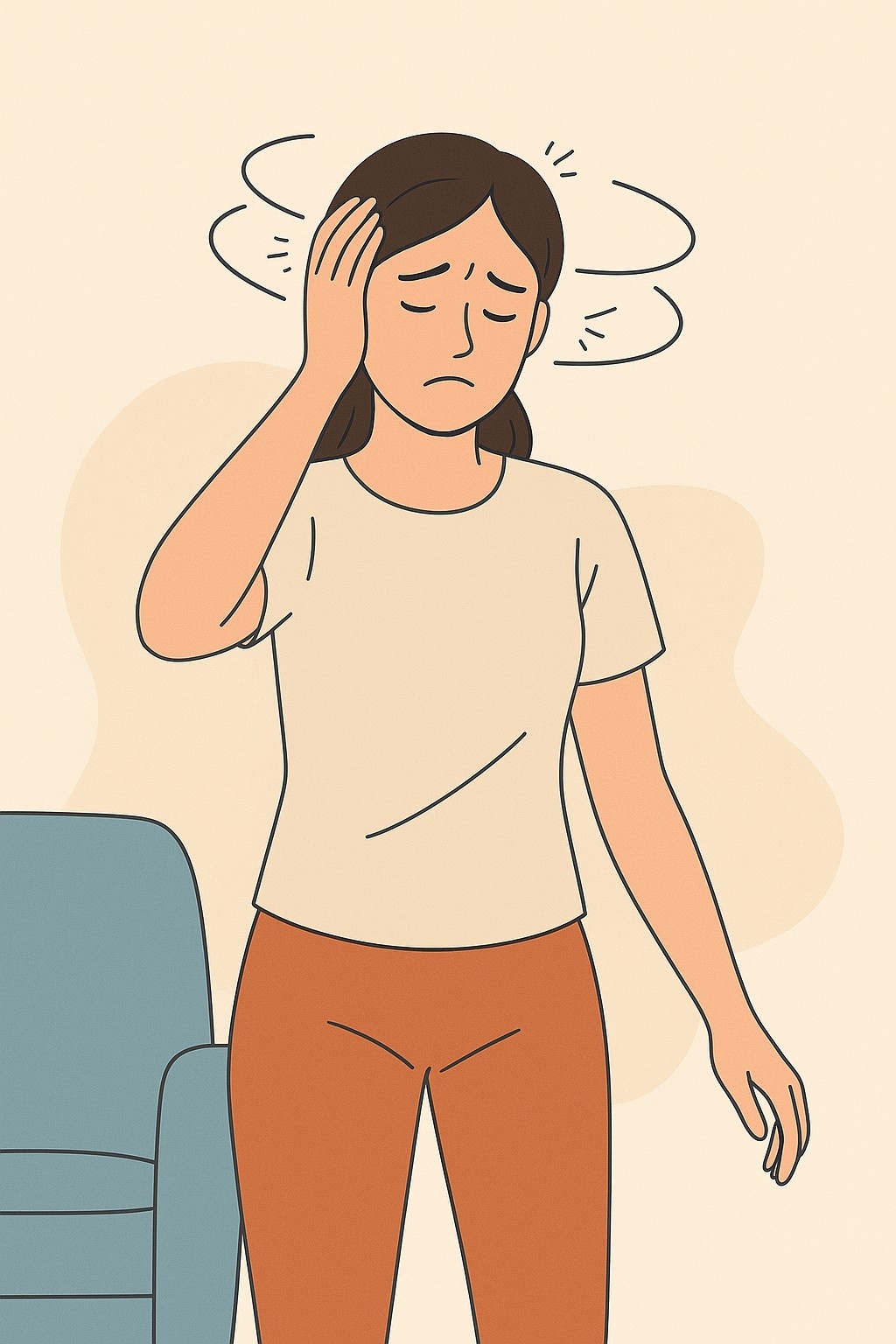Introduction
Have you ever stood up too quickly and suddenly felt lightheaded or dizzy? You’re not alone — it happens to many people. This brief dizzy spell, also called postural instability or orthostatic dizziness, occurs when your body struggles to adjust your blood flow as you change position. Most of the time it’s harmless, but sometimes it can signal an underlying health issue.
What Happens When You Stand Up?
When you’re sitting or lying down, your blood is evenly distributed throughout your body. But when you stand, gravity pulls some of that blood toward your legs.
To keep you from fainting, your heart and blood vessels must quickly push blood back up to your brain.
If this process happens too slowly, your brain doesn’t get enough oxygen for a few seconds — causing that dizzy or unsteady feeling.
Common Causes of Dizziness When Standing Up
- Low Blood Pressure (Orthostatic Hypotension):
A sudden drop in blood pressure when you stand up is one of the most common reasons. - Dehydration:
Not drinking enough water reduces your blood volume, making your blood pressure drop. - Skipping Meals or Low Blood Sugar:
If you haven’t eaten in a while, your glucose levels can dip, leaving you weak or dizzy. - Medications:
Some medicines, especially for blood pressure, depression, or heart problems, can cause dizziness as a side effect. - Anemia:
Low red blood cell count means less oxygen reaches your brain. - Inner Ear Problems:
Your inner ear helps control balance. Any infection or fluid buildup there can make you feel unsteady.
The Science of Postural Instability
Your vestibular system (located in your inner ear) works with your eyes and muscles to maintain balance. When your brain doesn’t receive the right signals fast enough — like when you stand too suddenly — it takes a moment to adjust. That’s why you feel like the world is spinning or your vision blurs for a few seconds.
How to Prevent Dizziness When Standing
Try these simple steps to reduce the dizzy spells:
- Stand up slowly instead of rushing.
- Drink plenty of water throughout the day.
- Eat regular, balanced meals.
- Avoid skipping breakfast or long gaps between meals.
- If you take medication, ask your doctor if dizziness is a side effect.
- Do gentle leg movements before getting up from bed to improve circulation.
When to See a Doctor
Occasional dizziness is normal. But if you feel dizzy frequently, faint often, or have symptoms like blurred vision, chest pain, or shortness of breath, consult a doctor. Persistent postural instability might be linked to blood pressure disorders, heart issues, or neurological problems that need medical care.
Final Thoughts
Feeling dizzy when standing up is usually just your body taking a moment to adjust. But it’s also your body’s way of reminding you to slow down, stay hydrated, and listen to your health.
With small lifestyle changes — and medical advice if needed — you can keep your balance steady and your mind clear.

